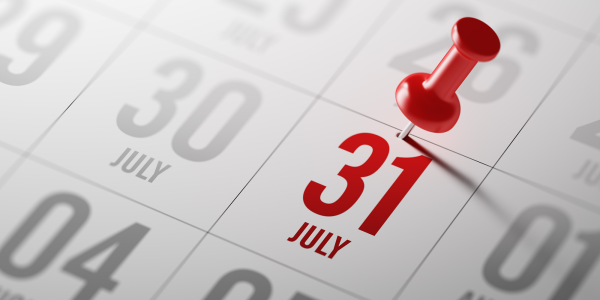Have you not yet paid your 31 July tax payment? Be careful if HMRC issue a penalty
If you have not yet paid (‘deferred’) your Self Assessment second payment on account for 2019/20, HMRC may automatically allocate payments made after 31 July 2020 against it. This means that if you wish to pay a penalty or other liability issued after that date, you may need to ask HMRC to allocate your payment against that other amount. Otherwise, you might suffer interest or other charges unnecessarily.

Content on this page:
What is the issue?
If you are in Self Assessment – that is, you file tax returns each year – you might be asked to make payments on account of your next tax liability.
If you had a second payment of account for 2019/20 due on 31 July 2020 and you chose to defer it, HMRC will not charge you any interest or penalties on the deferred payment provided it is paid by 31 January 2021. This was part of the government’s coronavirus support to help self-employed people with their tax liabilities.
However, the legal due date remains as 31 July 2020. This means that HMRC’s systems will usually automatically allocate any payments to your Self Assessment account after 31 July 2020 against that liability (if it is the oldest amount unpaid), because it would be treated as ‘outstanding’.
Normally this would not be a problem. However, you may be making a payment towards a tax obligation which is due to be paid between 31 July 2020 and 31 January 2021. For example, HMRC might have issued a penalty notice or you might have a Time-to-Pay arrangement in place. In this case, unless the payment is allocated against the intended liability, you may be charged interest unnecessarily or face action to collect amounts which you thought you had paid.
What might I need to do?
If you have deferred your second payment of account for 2019/20 and you are making a payment to HMRC for an amount falling due before 31 January 2021, you should let HMRC know at the time you make the payment that you wish the payment to be allocated against the latter amount.
Unfortunately, this is not possible when making a payment to HMRC online. If you make a payment to HMRC by cheque, you can make the request by sending a letter with the cheque.
Alternatively, after making the payment you can contact HMRC by telephone or web-chat to ensure that the payment will be allocated as you had intended. You should do this as soon as possible.
Example
Patrick, 68, is a state pensioner but he is also self-employed as a gardener and continues to submit Self Assessment tax returns each year on paper. He has to make payments on account.
Due to a heart problem, he had to shield when coronavirus lockdown began, so his income dropped. He chose to accept the option offered by HMRC not to pay his 31 July 2020 payment on account.
In November, Patrick submits his 2019/20 tax return on paper. This is after the 31 October 2020 deadline for paper returns, so HMRC send him a late filing penalty. Patrick doesn’t have a reasonable excuse for being late with his return – he simply forgot about it – so he pays the £100 penalty on 12 December 2020.
Patrick will need to tell HMRC that his £100 payment is meant to pay the penalty. If he doesn’t, the £100 will be allocated against his deferred payment on account and the penalty will remain unpaid. He intends to pay the remainder of his 2019/20 tax liability, including the deferred 31 July 2020 payment on account, by 31 January 2021.
HMRC have misallocated my payment. What can I do?
You should contact HMRC as soon as possible.
If HMRC have already formally communicated the allocation (or misallocation) of the payment to you, you do not technically have the right to insist on it being changed.
However, if it is clear from the amounts involved that you intended for the payment to be allocated against the upcoming liability and not taken off the deferred payment on account, you can refer HMRC to their own guidance which notes that HMRC may infer how the payment should be allocated.
Where can I find more information?
HMRC’s internal Debt Management and Banking Manual contains more information on payment allocations.
Alternatively, you can contact HMRC.
